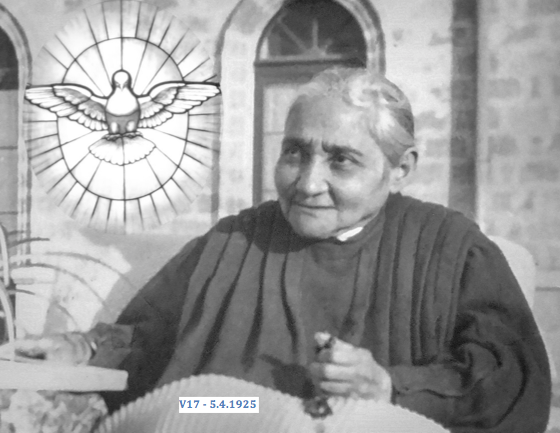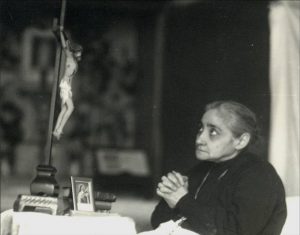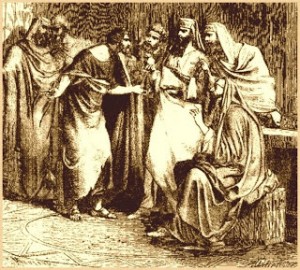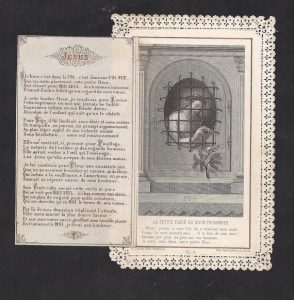A university student emailed me, “I am wondering if you had any advice for dealing with the abuse crisis. It has profoundly affected my spiritual life. I am experiencing feelings of anger, barrenness, and betrayal and struggling with the problem of evil more than ever before. I would really appreciate some guidance. I am feeling pretty lost.”
His anguish of mind and heart describes that of thousands of others, “lost” because of our national painful dilemma.
As for his need for advice, Carrie Gress, in her insightful book, The Marian Option, presents an historical analysis of Our Lady coming to the rescue as indicated in the subtitle God’s Solution to a Civilization in Crisis. Ours now is the Church in Crisis. But the solution is the same.
Where to find it?
Mary can show herself as she “who comes terrible in army array” (Song of Solomon 6.10). And why this militant image? Let us not forget that this is part of the spiritual warfare instigated by the demon and so vividly described by St. Paul in Ephesians 6.10-20. It is part of his overall plan to eliminate all icons of God the Father. Jesus said, “He who sees me sees the Father” (John 12:45). Europe is considered no longer Christian and therefore does not see Christ.
Both St. John Paul II and Pope Benedict XVI were very concerned about the loss of the sense of fatherhood in our contemporary culture. St. Paul shows the relationship of created fatherhood to the divine fatherhood in Ephesians 3:14: “I bend my knee before the Father, from whom all fatherhood is named.”
These scandals we are dealing with have practically destroyed trust in our spiritual fathers, the priests, who are meant to bring us Christ. Natural fatherhood is a blur due to contraception, abortion, co-habitation, same-sex unions, etc.
When the scandals erupted in 2002, a relative said to me that she never realized how much the devil is after priests. She echoed St. Faustina, the Messenger of Divine Mercy, “O Divine and Great High Priest, may the power of your mercy accompany them everywhere and protect them from the devil’s traps and snares which are continually being set for the souls of priests” (Diary 1052).
Our Lady Notifies
Frequently, Our Lady tried to prevent disasters by a forewarning. At La Salette, she wept because of the loss of faith that would result in a famine where children would die in the arms of their parents. But she also emphasized that in the case of their conversion and living faith, the rocks would turn into mounds of wheat and the potatoes would seem to sow themselves.
At Fatima, a universal disaster was predicted as arising from then insignificant Russia. Who followed her lead? We know the results.
From 1981 to 1983, in Kibeho, Rwanda, she emphasized true heartfelt conversion. A decade later there was a national tribal massacre. Then there are those who ask “Where was God?” The reply must be where were we when we were being forewarned.
Our Lady’s Forewarning
Has there been any forewarning in the United States? There does not seem to be any explicitly, like La Salette, Fatima, or Kibeho. But there is evidence of an implicit notice in the message of Our Lady of America. She came under that title to Sister Ephrem (Mildred Neuzil) of the Precious Blood community in Indiana and Ohio. Her communications with Our Lady of America began in 1954 to 1959.
Her Ordinary was Archbishop Paul Leibold of Cincinnati, Ohio – who had been her spiritual director when vicar general. Thus, he was well aware of these messages as they were given. Although he never issued a document authenticating these graces, his actions showed his approval. This included personally financing medals, images and holy cards of Our Lady of America.
The USCCB requested Cardinal Raymond Burke, then Archbishop of St. Louis and the leading canon lawyer in this country, to study this case. He concluded that Archbishop Leibold authenticated the messages of Our Lady of America not explicitly by an official statement but implicitly by action. He stated this conclusion in a letter sent to each member of the USCCB dated May 31, 1997.
Our Lady of America
It is very significant that Mary identified herself as Our Lady of America – The Immaculate Virgin. Interestingly and prophetically, her messages centered on the virtue of chastity in America. This is succinctly evident in her message of Sept. 25, 1956. “I wish it (America) to be the country dedicated to my purity. The wonders I will work will be the wonders of the soul. They must have faith and believe firmly in my love for them. I desire that they be the children of my Pure Heart. I desire, through the children of America to further the cause of faith and purity among peoples and nations. Let them come to me with confidence and simplicity, and I, their Mother, will teach them to become pure like to my Heart that their hearts may be more pleasing to the Heart of My Son.”
She continued on Sept. 27, 1956: “Behold, O my children, the tears of your Mother! Shall I weep in vain? Assuage the sorrow of my Heart over the ingratitude of sinful men by the love and chasteness of your lives. Will you do this for me, beloved children, or will you allow your Mother to weep in vain. I come to you, O children of America, as a last resort. I plead with you to listen to my voice. Cleanse your souls in the Precious Blood of My Son. Live in His Heart, and take me in that I may teach you to live in great purity of heart which is so pleasing to God. Be my army of chaste soldiers, ready to fight to the death to preserve the purity of your souls. I am the Immaculate One, Patroness of your land. Be my faithful children as I have been your faithful Mother…I desire to make the whole of America my shrine by making every heart accessible to the love of My Son.”
This poses the question: Is our present dilemma due to a lack of proper attention and response to this message given about 60 years ago?
While preparing for Mass on the Solemnity of the Assumption of Our Lady, in the Shrine of Our Lady of Joyful Hope, this idea came to me — which I leave to our bishops’ discernment.
Solution to Drastic Problem
At times a drastic problem needs a drastic answer. It seems beyond just human endeavors to heal these deep wounds. Since this dilemma has a spiritual dimension, something spiritual must be included. May I ask our bishops to consider the following?
Most of the members of the USCCB should be familiar with the message of Our Lady of America, validated by Cardinal Raymond Burke in his letter to all the American bishops. Her message includes her request to be solemnly enthroned in the Basilica of the National Shrine of the Immaculate Conception by the bishops, promising many conversions. But there seems to be a snag in the process that is detaining its long-awaited fulfillment. Let us pray to her to “untie this knot” to remove this obstacle and make the road smooth for the bishops to take action.
Would the bishops proceed with Our Lady’s request as a plea to her, the Consolation of the Afflicted, for her maternal intervention on behalf of her supplicants? This will definitely be drastic and spiritual. But where else can we get any hope for a remedy for these serious afflictions that are shaking the faith of many, as the university student indicated to me. Therefore, should we not entrust this situation to her by this public act manifesting our great confidence in her?
Should we not make plans for a program on purity of mind, chastity of body and modestly in manners?
Joseph Joins Our Lady of America
We are not alone in this project because not only Our Lady but St. Joseph assures us of assistance. He participated in the messages of Our Lady of America by appearing several times to Sister Ephrem. On March 11, 1958, promising to bring countless souls to a new way of life, he told her, “I bring to souls the purity of my life and the obedience that crowned it… Through me the Heavenly Father has blessed all fatherhood… Fatherhood is from God and must take once again its rightful place among men.”
Sister Ephrem saw his most pure heart and heard these words, “Behold this pure heart so pleasing to Him Who made it.” This would be developed in St. Joseph’s messages to a university student in Itapiranga, Brazil in 1997, where devotion to the Chaste Heart of St. Joseph was taught.
It would be encouraging if the bishops of the USCCB took serious note of Our Lady’s enthronement in her National Shrine and discussed it appropriately. Without doubt, the laity backing their bishops would certainly strengthen them in this endeavor.
The bishops have been inundated with letters expressing national distress. Let us offer them some reprieve with this request to fulfill Our Lady’s desire to remedy the cause.
Remember, that never was it known that anyone who fled to her protection or sought her intercession was left unaided!
Father Smolenski is the director of the Shrine of Our Lady of Joyful Hope in Kingstree, South Carolina






